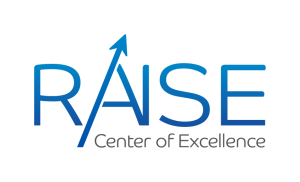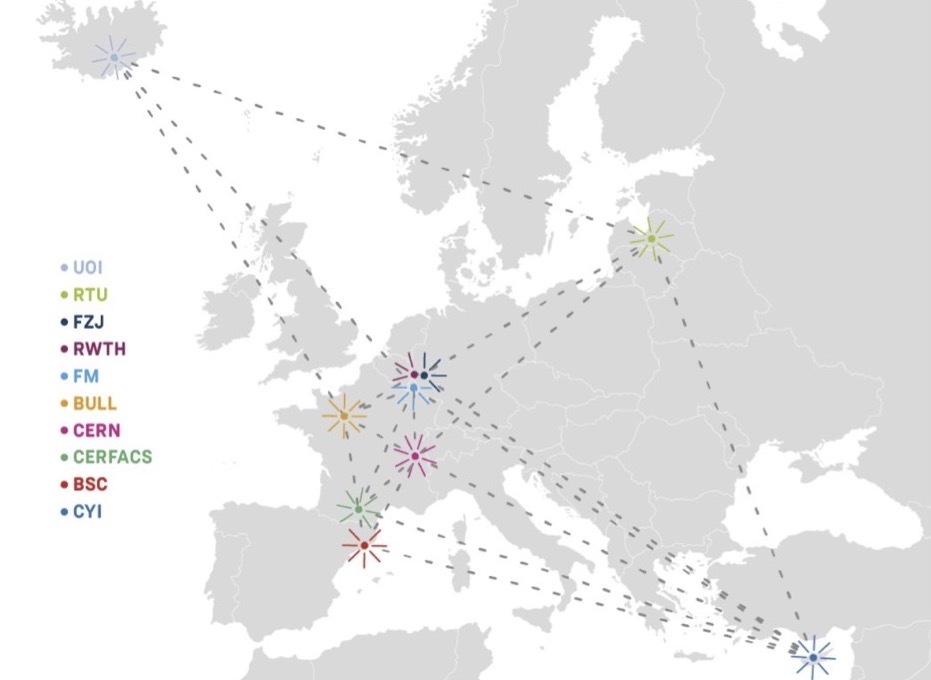CoE RAISE
The objective of the project “Research on AI- and Simulation-Based Engineering at Exascale” (CoE RAISE) is to establish a European Center of Excellence that would ensure opportunities for development of AI and high-performance computing (HPC) technology in Europe in both industrial and academic environment using AI- and simulation-based engineering. The Center is conceived as the main driving force for development of AI and HPC tools.
One of the project goals is to develop AI solutions that may be applied to computing systems of different capacity and configurations from small-scale university systems to large-scale pan-European systems, and even to future exascale systems. Project researchers will also have an opportunity to test the developed codes on the prototype of a quantum computing system. Besides, within the project, RTU will ensure access to its HPC system and will provide HPC support in the development of AI solutions.
Coordinator: Forschungszentrum Jülich GmbH
Number of project partners: 11
Funding: ES H2020; 5M €
Implementation period: 01.01.2021.-30.06.2024.
Latvia is represented in the project by RTU
The role of RTU in the project
The role of RTU in the project is to ensure technical resources and competence in development and testing of AI software involving RTU IT specialists, as well as to coordinate the development of the learning platform and the range of offered courses.
In cooperation with the Barcelona Supercomputing Center (BSC), RTU will investigate machine learning approaches to wind turbine model development applied in wind farm simulations in order to enhance efficiency of power generation. The computing technologies for solving complex physical problems developed during the project will be employed to fulfil this applied task using joint experience and knowledge of the partners to project consortium for development and implementation of exascale AI solutions.
In cooperation with the European Organization for Nuclear Research (CERN), RTU will design innovative data processing methods for the Large Hadron Collider (High Luminosity LHC) (HL-LHC), which is currently being modernized and which is expected to be put into operation in 2027. Conventional detection algorithms for elementary particle collisions will be replaced with AI methods.
The algorithms developed during the project will be integrated and tested on the existing CERN software solutions to evaluate their capabilities and advantages under real working conditions processing big data. Within the project, it is planned to evaluate applicability of various contemporary HPC architecture solutions to current tasks, including graphics processing units (GPU) and field-programmable gate arrays (FPGA).
GOALS OF THE PROJECT COE RAISE
- To create innovative artificial intelligence (AI) methods for exascalable heterogeneous HPC systems of various capacity and configurations; to summarize the developed representative simulation codes and data-based workflows for general applications;
- To provide knowledge and technology transfer to the industry, small and medium-sized businesses (SME’s), as well as to the academic community, but as for AI and HPC – to less developed countries and computing centers; to provide relevant training activities and technical support, as well as the applicable software codes and workflows in heterogeneous/modular computing systems aimed at exascaling.
- To establish the European network of contact units in order to provide available infrastructure and knowledge, consulting and other services to the industry, SMBs and academic community with lower competence in the field of AI and HPC.
- To develop a business plan in order to ensure sustainability, financial independence and continuous extension of the service range of the Center of Excellence after completion of the project.
- To maintain contacts with the current European projects in order to exploit the synergy, avoid project overlapping, use co-projecting opportunities and share knowledge.
Project partners
Belgium (Flanders MAKE VZW);
Cyprus (The Cyprus Institute);
France(Centre Europeen de Recherche et de Formation Avancee en Calcul Scientifique (CERFACS); Bull SAS; Safran Helicopter Engine);
Germany (Forschungszentrum Jülich GmbH; RWTH Aachen University; ParTec AG);
Iceland (Haskocli Islands);
Latvia (Rīgas Tehniskā universitāte);
The Netherlands (Delft University of Technology (TUDelft));
Spain (Barcelona Supercomputing Center);
Switzerland (European Organization for Nuclear Research (CERN)).


